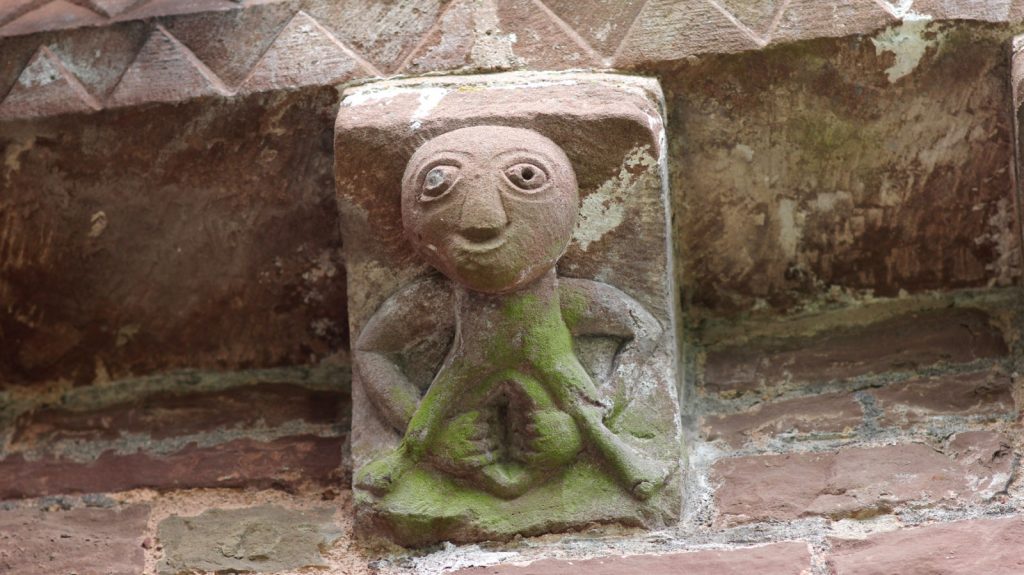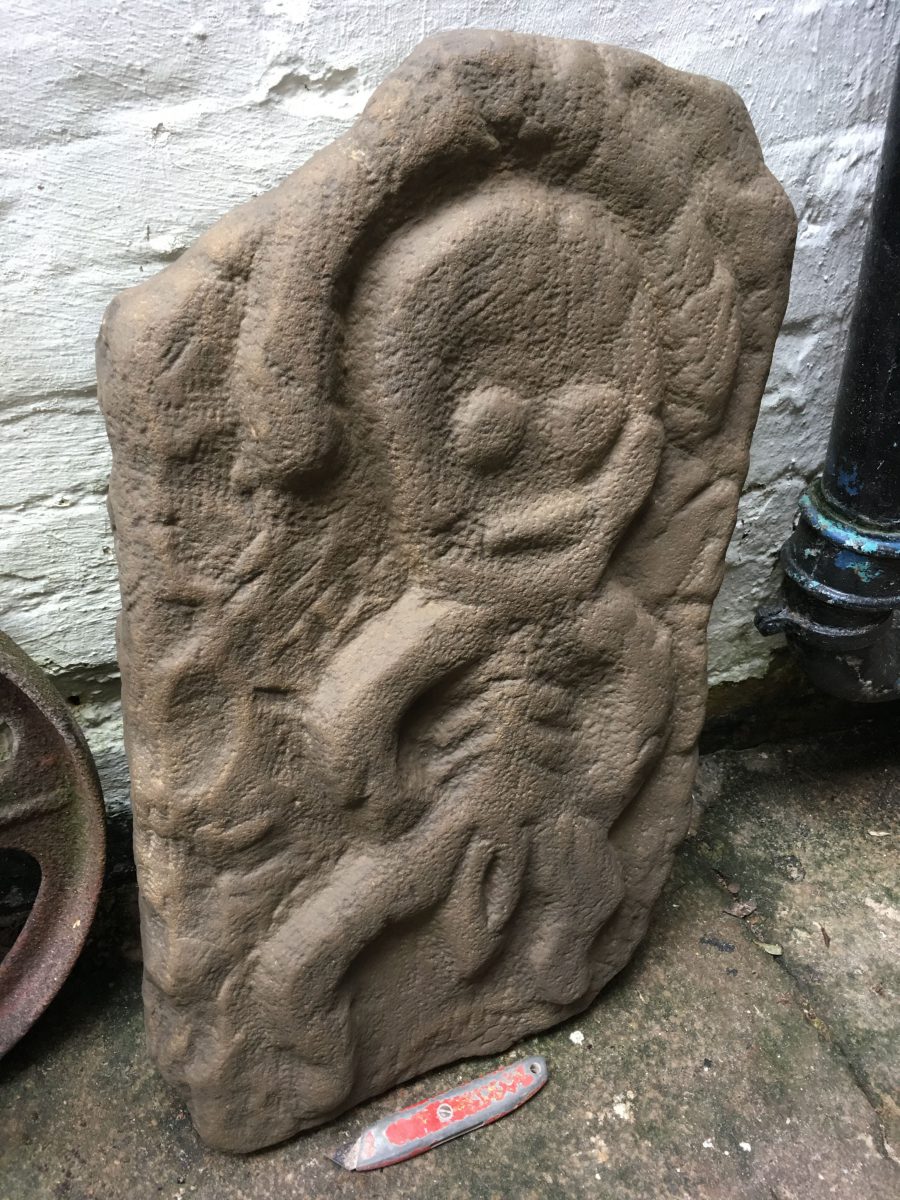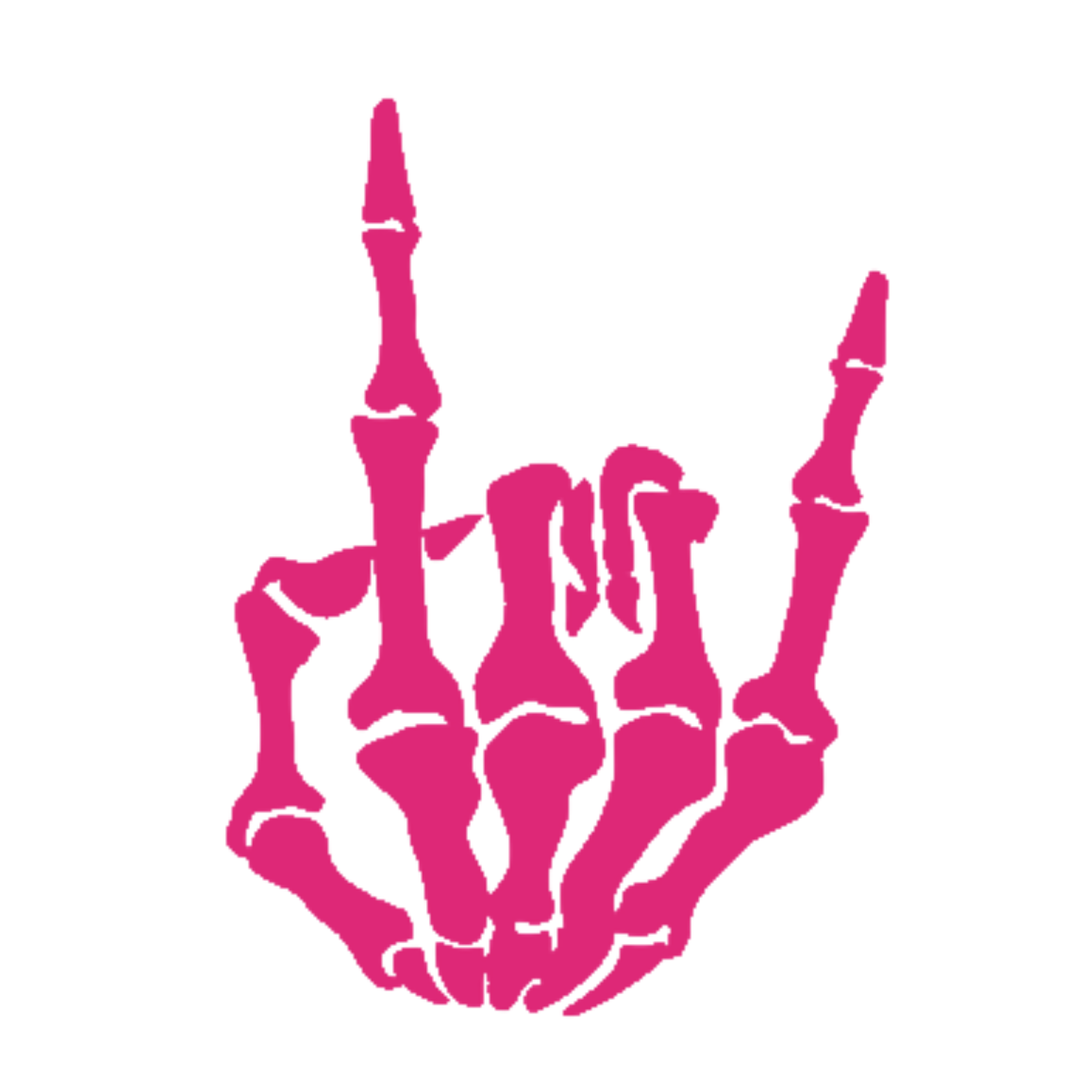13 Days of Sheela Na Gig: Motherhood, Mothering, and Choice
“In my life politics don’t disappear but take place in my body.”—Kathy Acker
I’m leading my church’s service this Sunday (mostly about Mary Magdalene, should be awesome). It’s been a while since I’ve done this, so I went looking for an old sermon to get a word count. Lo and behold, I found this Mother’s Day message from 2022—right after Dobbs dropped. I had forgotten that this whole piece is about Sheela Na Gig. It feels relevant—again—as I’m rounding out a month devoted to Sheela, and while were watching the fallout from Alabama’s attack on IVF and waiting for a decision on Food and Drug Administration v. Alliance for Hippocratic Medicine. I refer to some friends who participated in this service—including Croning Collective member and contributor Mel Bailey—and I link to the music and readings they shared
When I knew that I was going to be leading a service on Mother’s Day, I knew exactly what I wanted to talk about. I wanted to talk about Sheela Na Gig.

The Sheela carved into the exterior of Kilpeck Church in Herefordshire, England, is probably the most famous Sheela, it’s safe to say that she’s become exemplary. Sheelas are most commonly found in England, Scotland, and Ireland, but there are several on the continent, as well. Almost all of them adorn churches, except where they’ve been removed from churches. Scholars disagree on what the Sheela Na Gig means—they even disagree about which figures qualify as Sheelas—so I won’t try to tell you what Sheelas meant to the people who passed under them as they went to worship hundreds of years ago. But I can touch on what Sheelas mean now—to historians but also to artists, feminists, female elders, and childbirth advocates. I can talk about what Sheelas mean to me.
I wanted to talk about this figure because I wanted to offer something of a counternarrative to the often-trite sentimentality of Mother’s Day. For me, the Sheela is a site where life and death intersect. I see her as both Mother and Crone. (The Crone aspect is more obvious in the skeletal Ashbourne Sheela Na Gig

People with uteruses have, obviously, always been intimately involved with pregnancy and childbirth, but women have also traditionally cared for the sick, the dying, and the dead. And, in a universe where matter is neither created nor destroyed, creation is inextricably entwined with destruction. I wanted to talk about that.
I also wanted to talk about pregnancy and childbirth as physical experiences. One of the reasons I love Sheela Na Gig is because she invites us—compels us, really—to look at the body. Her vulva might seem exaggerated, but I suspect that anyone who has ever experienced vaginal birth will feel some truth in this hyperbole.
As an idea of womanhood, Sheela is the antithesis of another archetype, Mary, the Mother of Jesus. The physical purity of Mary is so essential to her holiness that she not only gives birth without experiencing sex, but she also must remain “ever virgin”—despite textual evidence in the New Testament that Jesus had brothers and sisters. Beyond that, she, herself, was conceived without sin. Mary is a complicated figure, and I’m not going to do her justice today, but I’ve been thinking about how her inviolate body separates her from the rest of humanity—from our interconnectedness—just as redemption through Jesus Christ severs the link between life and death. The song that Mel shared speaks to me because it celebrates interconnectedness. Maggie Clifford sings about how we are made of the same elements that make up everything. In her lyrics, she affirms that love—not sin—is our inheritance.
I was still thinking these ideas through when the draft of Justice Alito’s Dobbs opinion hit the news. So now I want to talk about body autonomy and the right to not become a mother—to not give birth to a child—and it turns out that Sheela Na Gig seems relevant to that conversation, too. When I look at figures like the one at Kilpeck, I see an image of self-possession. This Sheela owns her body, without apology. She dares you to look away and, if you do, any sense of shame is yours, not hers.
As I think about shame, I think about notions of womanhood that have always existed alongside—or maybe just beneath—the ideal represented by the Virgin Mary. We hear the idea that a someone seeking an abortion should feel shame in the poem that Stacey read today. I can’t help recalling the words Tertullian—whom some regard as the founder of Western theology—wrote at the end of the second century of the common era. He exhorts women to remember that they are Eve, the author of “original sin.”
“The sentence of God on this sex of yours lives on even in our times and so it is necessary that the guilt should live on, also. You are the devil’s gateway, you are the one who first plucked the fruit of the forbidden tree, you are the first who deserted the divine law; you are the one who persuaded him whom the devil was not strong enough to attack. All too easily you destroyed the image of God, man. Because of your desert—that is, death—even the Son of God had to die.”
Tertullian’s phrase—“the devil’s gateway”—struck me to my core when I first encountered it as an undergrad. It felt like a visceral blow because I couldn’t help thinking of it in physical terms. It was not uncommon, in nineteenth century especially, for scholars to see Sheelas as warning against lust; in this interpretation, a Sheela is a graphic depiction of what the devil’s gateway looks like, and a reminder of on whose body the devil’s gateway resides. In this interpretation, those walking beneath a Sheela to go to Mass are being reminded of who is, ultimately, to blame for their sins—for everyone’s sins.
Thank you for reading Croning. This post is public so feel free to share it.
Notions of guilt and innocence have everything to do with how we think about abortion in this country, and how we legislate around it. An outright ban on abortion at any stage of pregnancy is predicated on the idea that a fertilized cell is a person. This is, of course, a view that is not shared by everyone, and which is almost certainly a minority view outside of a few Christian denominations. I think that, if we interrogate this view, we get at some important points about how we—as a society—award and withhold autonomy.
Dave Barnhart is a Methodist pastor. In 2018 he wrote something on Facebook that went viral and tends to resurface when people are talking about abortion. He is speaking to his fellow Christians and, while we are not all Christians here, I think his words are worth sharing:
“The unborn” are a convenient group of people to advocate for. They never make demands of you; they are morally uncomplicated, unlike the incarcerated, addicted, or the chronically poor; they don't resent your condescension or complain that you are not politically correct; unlike widows, they don't ask you to question patriarchy; unlike orphans, they don't need money, education, or childcare; unlike aliens, they don't bring all that racial, cultural, and religious baggage that you dislike; they allow you to feel good about yourself without any work at creating or maintaining relationships; and when they are born, you can forget about them, because they cease to be unborn. It's almost as if, by being born, they have died to you. You can love the unborn and advocate for them without substantially challenging your own wealth, power, or privilege, without re-imagining social structures, apologizing, or making reparations to anyone. They are, in short, the perfect people to love if you want to claim you love Jesus but actually dislike people who breathe.
Prisoners? Immigrants? The sick? The poor? Widows? Orphans? All the groups that are specifically mentioned in the Bible? They all get thrown under the bus for the unborn.
Pastor Barnhart makes it clear that, if we’re operating within a binary system in which we’re granting rights to the innocent and withholding them from the guilty, the unborn are always going to be the most deserving because they are—by definition—incapable of doing wrong.
Even Americans who believe that abortion is murder, for the most part, want to see exceptions for rape and to protect the life of the pregnant person. I won’t even get into the logical inconsistencies of this position; instead I will bring us back to how ideas about innocence and guilt shape access to abortion. If we—and by “we” I mean the dominant culture in the United States—are willing to make abortion care available only to people who have been raped and to people who will die without abortion care, we are making the decision that body autonomy belongs to those who aren’t to blame for their pregnancies or their need for an abortion. We are making the decision that anyone who is pregnant because they chose to have sex should suffer the consequences, and the consequences are forced birth.
The poem Andrea read invited us to think about what choice looks like—choice without reference to guilt or innocence, without reference to sin.
I don’t believe in sin. I do believe in the 1st principle, though. I affirm the inherent worth and dignity of every human person. And I try act in accordance with the 2nd principle’s call for justice, equity, and compassion.
This week, I have felt called to reexamine what living the 1st and 2nd principles looks like. For instance, what does radical hospitality look like if abortion is legal in Michigan but not in Ohio or Indiana? Does my commitment to the 1st Principle mean that I’m ready to stockpile the drugs needed for medical abortion? These are the questions I am asking myself this Mother’s Day, and I will ask you all if we should be considering these questions and others like them as a congregation.
I’ve wrestled to compose these words for days, and I don’t know how to wrap these messy, complicated thoughts into a neat conclusion. I’ll just leave you with these words from Kathy Acker, words that felt revelatory to me when I first read them: “In my life politics don’t disappear but take place in my body.”
This sermon was delivered on May 8, 2022, at the Unitarian Universalist Fellowship of Central Michigan.


Comments ()